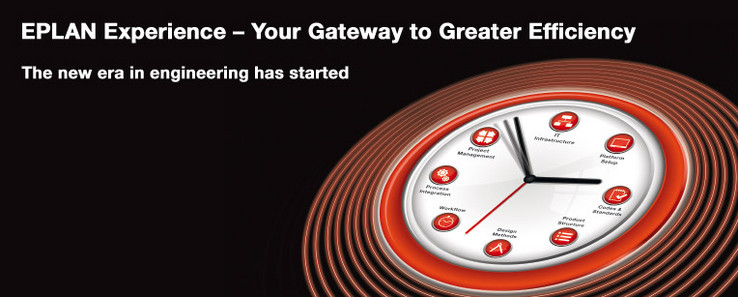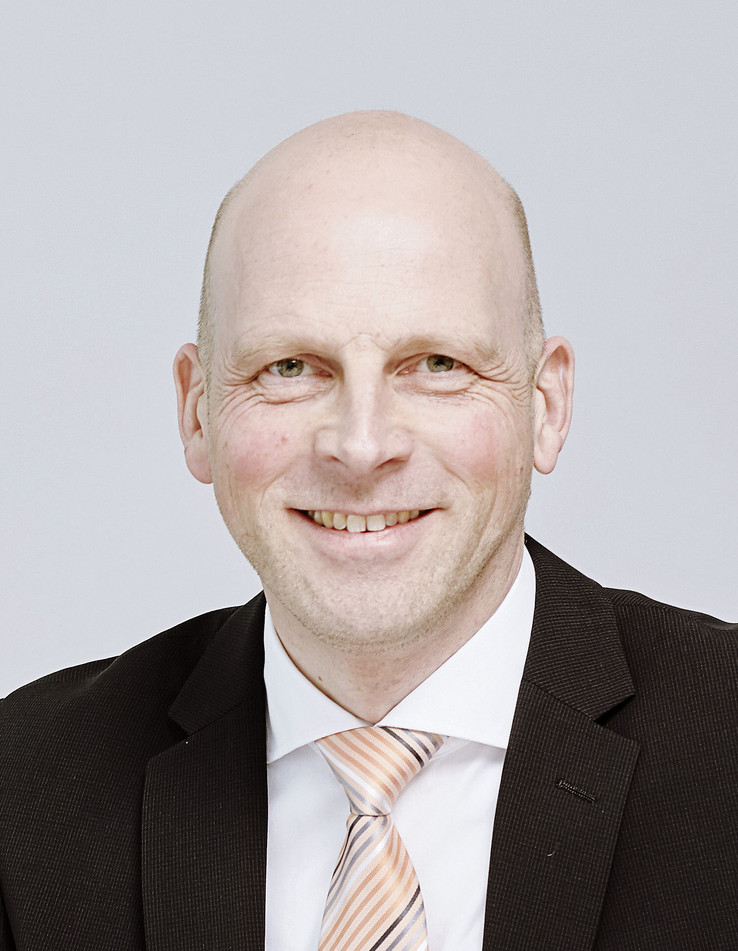A guide for engineering
Thomas Michels, Head of Product Management at EPLAN talks about how EPLAN Experience is progressing.
At the SPS IPC Drives 2014, EPLAN launched its "EPLAN Experience" strategic programme – a guide using a total of eight fields of action to achieve greater efficiency in engineering. Thomas Michels, Head of Product Management at EPLAN talks about how the project is progressing. Mr Michels, What is your assessment one and half years on from the launch of the "EPLAN Experience"? Michels: We have been surprised by the big impact the programme has made. Users recognise the need to standardise their engineering in order to become more efficient. They also want specific guidance on how to do this is which is what the programme also provides. Playing vital roles here are the relevant standards and guidelines such as IEC 81346. Clients require their service providers and suppliers to fulfil such standards which triggers a process of change. Companies therefore need the kind of support that conventional software suppliers are unable to provide. The events we organise for customers on this subject reflect the high demand. Our Efficiency Days events give specific guidance and approaches for the fields of action and last year had more than 800 participants. What kinds of company are interested in this subject and what kinds of problems do they have? Michels: Companies involved in plant and machinery engineering are often faced with the challenge of integrating sales, engineering and manufacture. The different ways of viewing their own portfolios and the absence of data consistency already present major problems for the departments/processes downstream from sales. A common and shared product structure is therefore essential. Only when information provided by sales – i.e. product variants and options – is easy to integrate into engineering can project development be implemented consistently through to manufacture. Achieving this common viewpoint of product portfolios is currently a major challenge for large companies. Users operating as service providers/suppliers are also keenly interested in raising the potential of their engineering. They are often involved in complex project plans and confronted with increasing demands from guidelines, standards, quality, and short design times. Working for different clients already makes it difficult to achieve standardisation in the work environment. The challenge here is to define flexible standards as well as to select an appropriate setup for your own working environment. Different settings for working in different environments for specific clients is a challenge. What is your experience of implementing EPLAN Experience? Michels: Time is needed for the topics and fields of action to take effect within the market over the range of communication channels. We are aware of this and focus on a long-term implementation of optimisation plans. Implementation also needs time because established working practices require rethinking and gradual adaptation. Implementing cross-departmental topics is something that requires a particularly long-term approach. Users have mainly focused on the Codes & Standards and Design Methods fields of action, and on Product Structure over the past 6 months. The end result of Product Structure is specific to the customer but the approach can be standardised if we give customers the right kind of help as well as management support. Will there be further fields of action? Michels: Even after one year from the launch there's been no indication that a ninth or tenth field of action is needed. To be honest, we were not completely sure about the original definitions but experience from the first year has confirmed that the existing fields of action cover customer issues and requirements. Which field is causing companies the most problems? You can't generalise here but Codes & Standards is certainly a challenging topic. This requires understanding the complex and at times abstract specifications from standards. To then implement these into your own company is an entirely different task. To achieve this without any support, especially for international markets, is practically impossible. What is planned for the future? Michels: Our claim is implementing the potential and opportunities offered by 'EPLAN Experience' for the long-term at our customers. Sometimes less means more here. This doesn't mean less efficiency or less optimisation but rather gradual implementation at a "healthy" speed resulting in a long-term, future-proof installation. There is nothing more unhelpful than a standardisation project that stalls halfway through because the goals and milestones chosen were too ambitious. That's why we want a gradual rollout of the fields of action.



